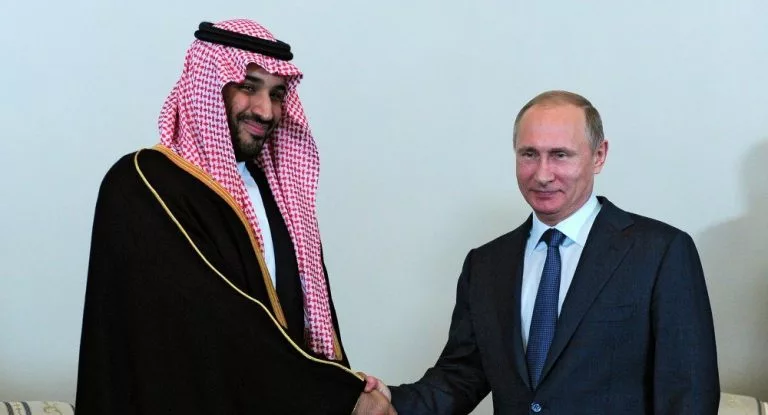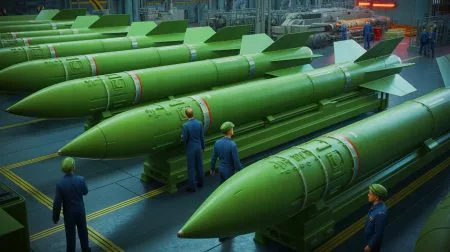The fall of the U.S. stock market over past two weeks has pulled global markets and oil prices down with it. Brent crude fell from $70 per barrel in late January to $63 the second week of February, another flash of volatility that indicates that, despite Russian cooperation with OPEC, market supplies are still not balanced. The only potential for such spare capacity lies in ROPEC, the burgeoning alliance between OPEC and Russia. ROPEC combines OPEC’s massive conventional reserves with Russia’s bonanza-like potential through the combination of shale and offshore reserves. Geopolitics have prevented ROPEC’s emergence in the past, but this does not guarantee the future. In fact, ROPEC is an outgrowth of Russia’s foreign oil policy since the United States and Europe imposed sanctions on its energy sector in 2014.
Elusive oil-price stability
The world will likely never have price stability, according to Robert McNally. McNally’s recent history of oil prices argues that ample spare capacity brings market and oil-price stability. Oil-price volatility, moreover, is in no one’s interests, not consumers and certainly not producers. Only short-term investors, oil refiners, and oil storage operators benefit from it. The lack of a market stabilizer with the all-important spare capacity undermines the global economy. The Texas Commission and Seven Sisters offered stability because they controlled the center of global demand (Western Europe, Japan, and the United States) and supply (the Middle East).
As control over supply shifted to Middle East countries in the 1970s, the calculation changed. Only OPEC countries had the spare capacity to ensure a stable market. Over the ensuing decades, the center of demand has also shifted to the Far East and spare capacity became a problem as China and other rising Asian economies seemed to possess an insatiable thirst for oil. While the 2014 correction in oil prices meant that the world was oversupplied, it has not created spare capacity.
Some argue that U.S. shale production could stabilize the market. U.S. production has reflected more price sensitivity than conventional production due to its shorter investment cycles. Yet it is still unclear how long U.S. shale will operate in this fashion. It is also clear that U.S. shale does not have the built-in spare capacity to control the market.
OPEC floor, Russian ceiling
The future of oil production lies in OPEC countries and Russia. The former account for 81.5% of the world’s proven conventional reserves of oil, while latter has another 6.5%. Saudi Arabia already has massive conventional supplies remaining to develop. Iran, Iraq, and Venezuela alone would provide plenty of potential spare capacity and oil-price stability.
Yet it is the prospect of future development of unconventional oil exploration (offshore, deepwater, and shale) as well as more efficient enhanced oil recovery techniques that makes ROPEC intriguing. The application of U.S. shale technologies alone would make the world awash in oil. Russia has the second-largest shale oil reserves behind the Untied States and other countries, including Argentina, China, Libya, the UAE, Australia and Venezuela have significant shale deposits. Russia has massive potential for offshore production in the slowly melting Arctic region and in other deep-water plays. Its newest gas project is situated on the Yamal Peninsula, while its Arctic oil reserves are estimated to be 60% of its undiscovered reserves.
A long-term play
ROPEC’s coordinated action to restrain oil production since November 2016 is historically unprecedented. The Cold War made it impossible for Saudi Arabia, a U.S. client state, to cooperate with the Soviet Union. The fall in prices in the late 1990s, however, fostered the first talks about OPEC-Russian cooperation. During that and other episodes, Russian kept its cooperation to a verbal level, as it was unwilling to relinquish control over its production choices to OPEC quotas.
Low prices since 2014, fears of a transition to a cleaner energies, and Middle East politics have galvanized ROPEC. OPEC, for its part, views greater cooperation with Russia as wise for its near-term political interests. Russia’s regional profile has grown in recent years, most notably with its commanding position on the Syrian battlefield since 2015. Russia has also taken more direct stakes in producing oil and gas in the region. The United States has partly withdrawn from the region since its departure from Iraq in 2011. Russia has also asserted herself more forcefully into the affairs of Venezuela. Its arrival dates to 2015, when Rosneft pledged $14 billion in investment. Rosneft propped up the financially challenged state oil company PDVSA with $6 billion in loans. In December 2017, it won offshore gas concessions.
According to Bassam Fattouh of the Oxford Energy Institute, Saudi Arabia is “charting a route where OPEC+ permanently plays an active role in managing market balances and participant expectations and where revenue maximization rather than output maximization is the main guiding principle.” In January 2018, OPEC and Russia agreed to extend oil production cuts through the end of the 2018. Last week, Platts reported that OPEC is finalizing an agreement to formalize long-term ROPEC cooperation.
Do we want oil-price stability?
OPEC and Russia have already begun to see eye-to-eye on prolonging the oil era. If ROPEC can deepen and extend cooperation, oil-supply concerns would evaporate, spare capacity would rise, and oil-price stability would return.
Oil-price volatility may be bad for those who want to see the world transition more quickly away from fossil fuels. A paper by the Canada-based Commission for Environmental Cooperation in 2008 argued that renewables employ more stable price models. Renewables are also not traded on a global market and not subject to geopolitics. Oil-price volatility is already, we must conclude, priced into the market and a factor driving the transition to renewables.
Sanctions against Russia’s energy sector since 2014 prompted Russia to seek oil alliances with OPEC countries. In 2017, these sanctions were renewed and strengthened. ROPEC may well fail to live up to its goals. Past experience shows that OPEC countries cheat on quotas. But, if cooperation is robust and sincere, ROPEC could alter the geopolitics of oil and bring about oil-price stability. Oil is in no danger of disappearing in the near or medium term. ROPEC could extend oil’s life, however, far longer than would otherwise be the case.
Did you like it? 4.4/5 (28)







